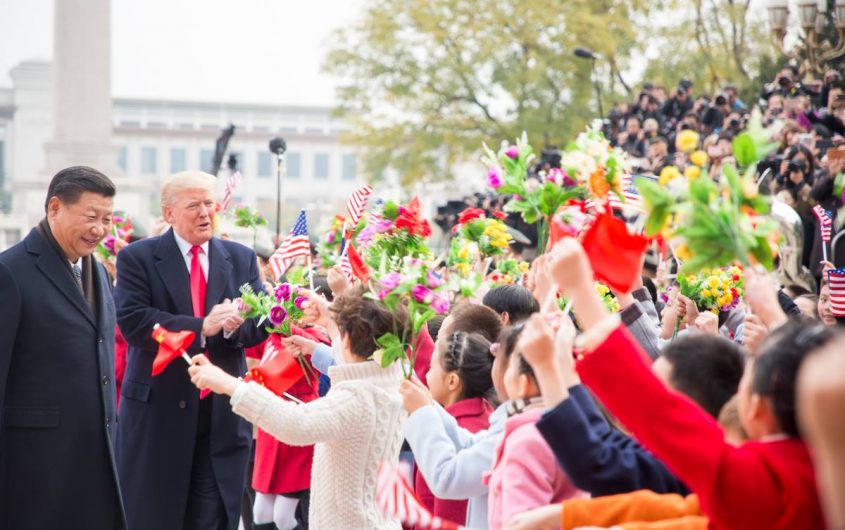
Official White House Photo by Shealah Craighead via Flickr
China Backlash: Toward a Transatlantic Agenda?

Noah Barkin
German Marshall Fund of the United States
Noah Barkin was a DAAD/AICGS Research Fellow from mid-March to mid-May 2019. Noah Barkin is a senior visiting fellow in the German Marshall Fund's Asia Program based in Berlin. Prior to joining GMF, he was a journalist who had reported from over 20 countries in 25-year career with Reuters, specializing in German and European political and economic issues. He served as Bureau Chief for Germany/Austria/Switzerland and in other senior writing, editing, and management roles in Paris, London, and New York. Noah has written a regular "Inside Europe" column for the New York Times and authored a book on the introduction of the euro. A native Californian, he has a BA in Political Science and French from UC Berkeley and a Master's in International Affairs from Columbia University.
During his fellowship at AICGS, Noah will be focusing on evolving policies toward China in the United States and Europe, exploring potential areas for cooperation and conflict.
At a time when the transatlantic relationship is under greater strain than at any period since World War II, there is one issue that should be pushing the United States and Europe closer together: China. On both sides of the Atlantic, concerns about China’s growing economic, political, and military ambitions have grown exponentially in recent years as President Xi Jinping has strengthened his grip over the country and laid out a set of ambitious multi-year plans and initiatives designed to restore China to past greatness. In Washington and many European capitals, there is shared anxiety today over a broad swathe of Chinese activities and policies. These range from the treatment of Western firms in China and a flurry of strategic, state-backed Chinese acquisitions abroad, to the spread of debt and political influence through Xi’s global infrastructure push, the Belt and Road Initiative (BRI), and the emergence of a pervasive Chinese surveillance state. China’s more assertive military posture in the Indo-Pacific and its human rights record, exemplified by the internment of over a million Muslims in the western region of Xinjiang, have deepened the collective sense of alarm.








